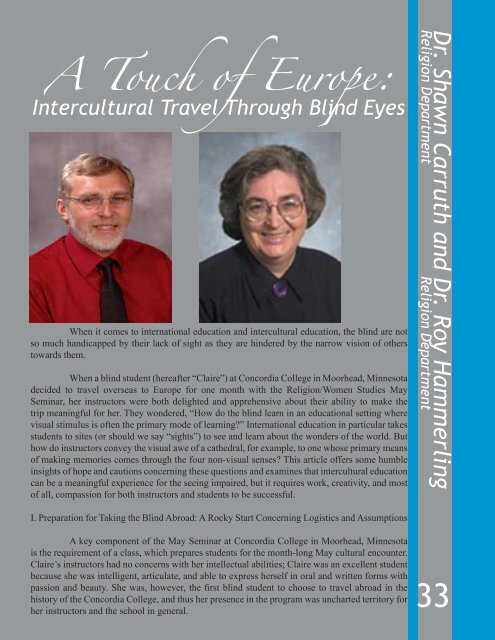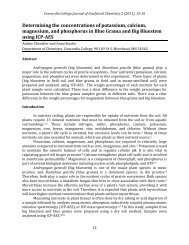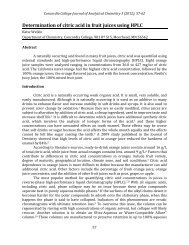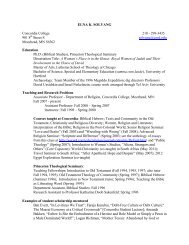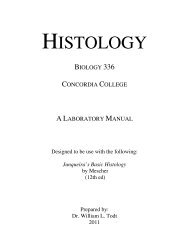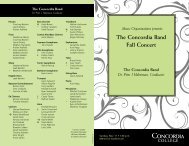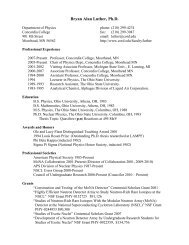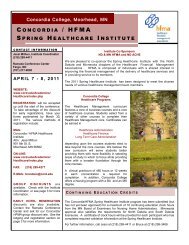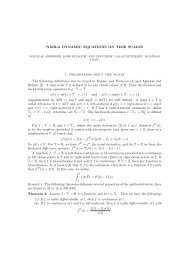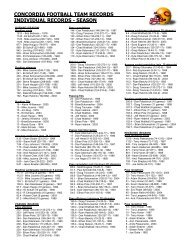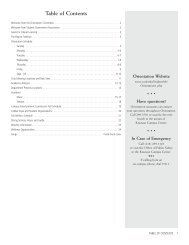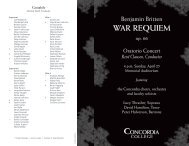Djembe - Concordia College
Djembe - Concordia College
Djembe - Concordia College
Create successful ePaper yourself
Turn your PDF publications into a flip-book with our unique Google optimized e-Paper software.
A Touch of Europe:<br />
Intercultural Travel Through Blind Eyes<br />
When it comes to international education and intercultural education, the blind are not<br />
so much handicapped by their lack of sight as they are hindered by the narrow vision of others<br />
towards them.<br />
When a blind student (hereafter “Claire”) at <strong>Concordia</strong> <strong>College</strong> in Moorhead, Minnesota<br />
decided to travel overseas to Europe for one month with the Religion/Women Studies May<br />
Seminar, her instructors were both delighted and apprehensive about their ability to make the<br />
trip meaningful for her. They wondered, “How do the blind learn in an educational setting where<br />
visual stimulus is often the primary mode of learning?” International education in particular takes<br />
students to sites (or should we say “sights”) to see and learn about the wonders of the world. But<br />
how do instructors convey the visual awe of a cathedral, for example, to one whose primary means<br />
of making memories comes through the four non-visual senses? This article offers some humble<br />
insights of hope and cautions concerning these questions and examines that intercultural education<br />
can be a meaningful experience for the seeing impaired, but it requires work, creativity, and most<br />
of all, compassion for both instructors and students to be successful.<br />
I. Preparation for Taking the Blind Abroad: A Rocky Start Concerning Logistics and Assumptions<br />
A key component of the May Seminar at <strong>Concordia</strong> <strong>College</strong> in Moorhead, Minnesota<br />
is the requirement of a class, which prepares students for the month-long May cultural encounter.<br />
Claire’s instructors had no concerns with her intellectual abilities; Claire was an excellent student<br />
because she was intelligent, articulate, and able to express herself in oral and written forms with<br />
passion and beauty. She was, however, the first blind student to choose to travel abroad in the<br />
history of the <strong>Concordia</strong> <strong>College</strong>, and thus her presence in the program was uncharted territory for<br />
her instructors and the school in general.<br />
Dr. Shawn Carruth and Dr. Roy Hammerling<br />
Religion Department Religion Department 33


